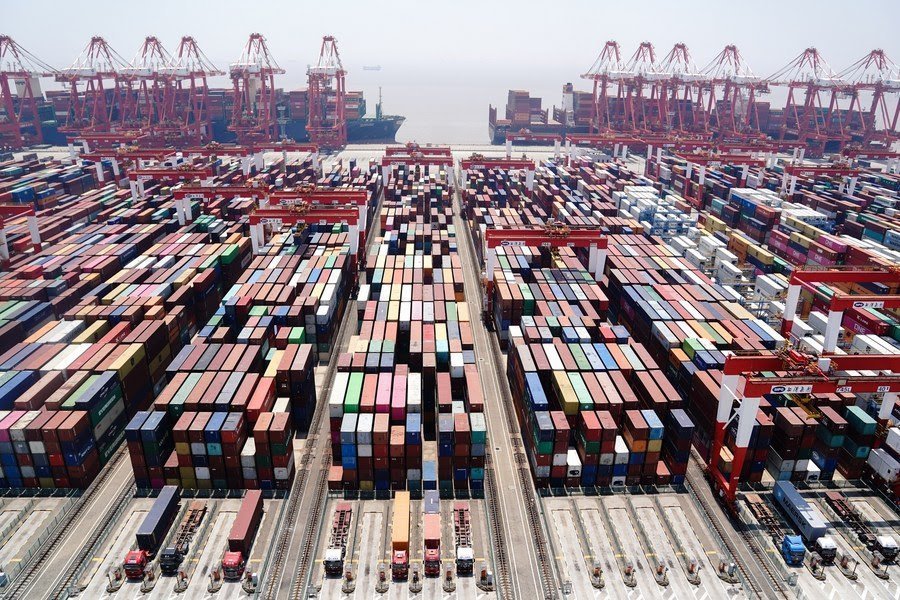In international transportation, how long containers can be held at the port or under the carrier’s control is a critical issue. This period is called free time, and if not managed correctly, it can lead to additional costs such as demurrage and detention. Free time management is an important strategy for reducing logistics costs, increasing operational efficiency, and ensuring customer satisfaction.
What is Free Time? Its Importance and Scope in Logistics
Free time is the period during which containers can wait at the port or carrier without incurring additional charges. This period is determined by the carrier, agent, or port authorities and typically ranges from 5 to 7 days.
Importance:
- Provides a cost advantage in logistics planning.
- Reduces demurrage and detention risks.
- It makes the transportation chain efficient by accelerating the container cycle.
Effective management of free time ensures smooth container traffic flow, especially during peak periods.
Why Do Demurrage and Detention Risks Arise?
Demurrage and detention risks usually arise from the incorrect use of free time or external factors.
Main reasons:
- Port Congestion: Causes delays.
- Incomplete or Incorrect Documents: Customs procedures are delayed.
- Insufficient Transportation Planning: Failure to pick up the container on time.
- Communication Issues: Poor flow of information between the shipowner, agent, and carrier.
These risks both increase costs and cause disruptions in the supply chain.
Basic Principles for Proper Management of Free Time Periods
There are some basic principles that companies should follow in managing free time:
- Time Tracking: The start and end dates of free time should be tracked using digital systems.
- Document Preparation: All customs and shipping documents must be prepared in advance.
- Communication: There should be a constant flow of information between the carrier and the agent.
- Alternative Plans: Backup solutions should be developed for unexpected delays.
These principles contribute to the efficient use of free time and the prevention of additional fees.
Planning Port Congestion and Free Times in Advance
Congestion at ports may prevent containers from being picked up on time. This situation leads to exceeding the free time period and incurring additional charges.
Solutions:
- Density Analysis: The peak periods of ports should be analyzed in advance.
- Reservations: Ship and port reservations must be made in advance.
- Alternative Ports: Different port options should be evaluated based on congestion levels.
Proactive planning is one of the most effective methods for ensuring that free time is not exceeded.
The Importance of Preparing Customs Documents on Time
Incomplete or incorrect customs documents cause the container to wait longer than necessary at the port. This leads to exceeding the free time period.
Important points to note:
- Complete Documentation: Invoices, bills of lading, and certificates must be prepared in advance.
- Use of Digital Systems: Electronic declaration systems should be utilized to accelerate document processes.
- Experienced Staff: You should work with experts who are well-versed in customs regulations.
Proper document management minimizes demurrage and detention risks and makes free time more efficient.
Methods for Strengthening Communication with Carriers and Agents
One of the most critical factors in free time management is strong communication with carriers and agents. Poor communication, misinformation, and lack of coordination can lead to free time periods being exceeded and demurrage/detention charges being incurred.
For strong communication:
- Regular Information Sharing: Loading and unloading dates should be shared in advance.
- Transparency: Any problems encountered should be reported immediately.
- Contract Clarity: Free time conditions must be clearly stated in contracts.
- Common Digital Platforms: Data sharing between the carrier, agent, and cargo owner should be conducted through the same platform.
These methods increase trust between the parties and minimize potential disputes.
Container and Free Time Control with Digital Tracking Systems
Today, digital tracking systems provide significant convenience in container and free time management. Thanks to GPS, IoT devices, and online tracking software, the location of containers and free time periods can be monitored in real time.
Advantages:
- Real-Time Information: You can instantly see where the container is and how long it will remain there.
- Alert Mechanisms: A notification is sent when the free time period is about to end.
- Data Analysis: Plans are developed by analyzing past shipments.
- Transparency: Customers are also informed about the process.
These technologies minimize the risk of exceeding free time for both the carrier and the customer.
Reducing Risks with Alternative Transportation Modes
One way to reduce the risk of free time overruns is to introduce alternative modes of transport. The congestion and customs delays experienced at ports in particular make it advantageous to switch to different modes.
- Rail Transport: Reduces port congestion for large-volume cargo.
- Road Transport: Provides more flexible delivery times.
- Intermodal Solutions: Offers more efficient solutions through sea + road or road + rail combinations.
The use of alternative modes helps to manage free time more effectively and reduce operational risks.
Free Time Extension Requests and Cost Management
Sometimes it may not be possible to stay within the free time period. In this case, an extension of free time may be requested from the carrier.
- Advance Request: The extension request should be made in advance, not close to the expiration date.
- Cost Analysis: Extension fees should be compared with potential demurrage/detention costs.
- Contract Flexibility: Extension rights should be included in contracts.
With proper cost management, free time extensions can prevent economic losses.
Professional Support in Free Time Management with Hazar Logistics
Hazar Logistics offers effective solutions to its customers with its expert staff and digital infrastructure in free time management.
Advantages offered:
- Tracking and reporting of free time periods,
- Professional support in communication with carriers and agents,
- Transparent process management with digital tracking systems,
- Cost optimization and risk reduction strategies.
Companies working with Hazar Logistics increase efficiency in free time management, thereby reducing costs and minimizing operational risks.


